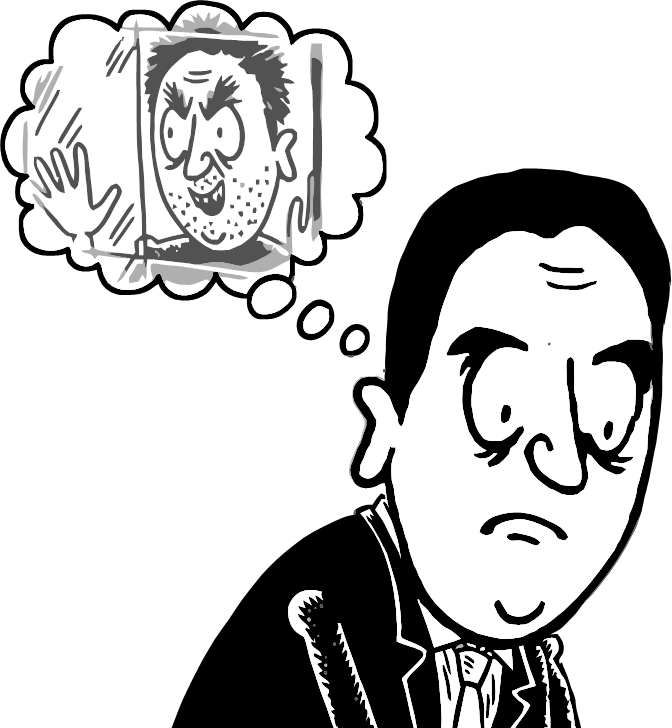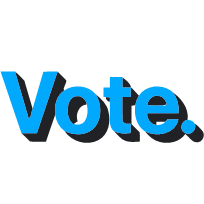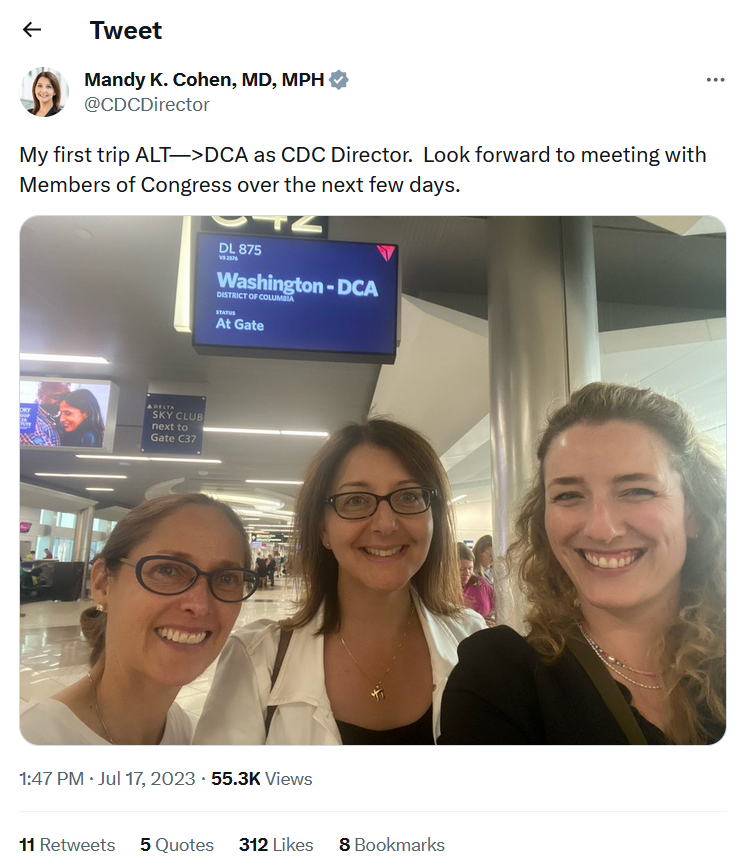Fatigue is among the most common and most disabling of long COVID’s symptoms, and a signature of similar chronic illnesses such as myalgic encephalomyelitis (also known as chronic fatigue syndrome or ME/CFS). But in these diseases, fatigue is so distinct from everyday weariness that most of the people I have talked with were unprepared for how severe, multifaceted, and persistent it can be.
For a start, this fatigue isn’t really a single symptom; it has many faces. It can weigh the body down: Lisa Geiszler likens it to “wearing a lead exoskeleton on a planet with extremely high gravity, while being riddled with severe arthritis.” It can rev the body up: Many fatigued people feel “wired and tired,” paradoxically in fight-or-flight mode despite being utterly depleted. It can be cognitive: Thoughts become sluggish, incoherent, and sometimes painful—like “there’s steel wool stuck in my frontal lobe,” Gwynn Dujardin, a literary historian with ME, told me.
Fatigue turns the most mundane of tasks into an “agonizing cost-benefit analysis,” Misko said. If you do laundry, how long will you need to rest to later make a meal? If you drink water, will you be able to reach the toilet? Only a quarter of long-haulers have symptoms that severely limit their daily activities, but even those with “moderate” cases are profoundly limited. Julia Moore Vogel, a program director at Scripps Research, still works, but washing her hair, she told me, leaves her as exhausted as the long-distance runs she used to do.
Man, fuck anyone who is still downplaying ME/CFS and long COVID fatigue or pretending it doesn't exist.
Post-exertional malaise, or PEM, is the defining trait of ME/CFS and a common feature of long COVID. It is often portrayed as an extreme form of fatigue, but it is more correctly understood as a physiological state in which all existing symptoms burn more fiercely and new ones ignite. Beyond fatigue, people who get PEM might also feel intense radiant pain, an inflammatory burning feeling, or gastrointestinal and cognitive problems: “You feel poisoned, flu-ish, concussed,” Misko said. And where fatigue usually sets in right after exertion, PEM might strike hours or days later, and with disproportionate ferocity. Even gentle physical or mental effort might lay people out for days, weeks, months. Visiting a doctor can precipitate a crash, and so can filling out applications for disability benefits—or sensing bright lights and loud sounds, regulating body temperature on hot days, or coping with stress. And if in fatigue your batteries feel drained, in PEM they’re missing entirely. It’s the annihilation of possibility: Most people experience the desperation of being unable to move only in nightmares, Dujardin told me. “PEM is like that, but much more painful.”
One of the most tragic things too is that most of these people (at least if they live in the US) probably get their disability applications rejected, because we live in a shithole country with an extremely depraved healthcare system.
As the historian Emily K. Abel notes in Sick and Tired: An Intimate History of Fatigue, many studies of everyday fatigue at the turn of the 20th century focused on the weariness of manual laborers, and were done to find ways to make those workers more productive. During this period, fatigue was recast from a physiological limit that employers must work around into a psychological failure that individuals must work against. “Present-day society stigmatizes those who don’t Push through; keep at it; show grit,” Dujardin said, and for the sin of subverting those norms, long-haulers “are not just disbelieved but treated openly with contempt.” Fatigue is “profoundly anti-capitalistic,” Jaime Seltzer, the director of scientific and medical outreach at the advocacy group MEAction, told me.
Energy-limiting illnesses also disproportionately affect women, who have long been portrayed as prone to idleness. Dujardin notes that in Western epics, women such as Circe and Dido were perceived harshly for averting questing heroes such as Odysseus and Aeneas with the temptation of rest. Later, the onset of industrialization turned women instead into emblems of homebound idleness while men labored in public. As shirking work became a moral failure, it also remained a feminine one.
These attitudes were evident in the ways two successive U.S. presidents dealt with COVID. Donald Trump, who always evinced a caricature of masculine strength and chastised rivals for being “low energy,” framed his recovery from the coronavirus as an act of domination. Joe Biden was less bombastic, but he still conspicuously assured the public that he was working through his COVID infection while his administration prioritized policies that got people back to work. Neither man spoke of the possibility of disabling fatigue or the need for rest.
And it's still a damn shame that neither of them died after giving COVID. 
Medicine, too, absorbs society’s stigmas around fatigue, even in selecting those who get to join its ranks. Its famously grueling training programs exclude (among others) most people with energy-limiting illnesses, while valorizing the ability to function when severely depleted. This, together with the tendency to psychologize women’s pain, helps to explain why so many long-haulers—even those with medical qualifications, like Misko and Oller—are treated so badly by the professionals they see for care. When Dujardin first sought medical help for her ME/CFS symptoms, the same doctor who had treated her well for a decade suddenly became stiff and suspicious, she told me, reduced all of her detailed descriptions to “tiredness,” and left the room without offering diagnosis or treatment. There is so much cultural pressure to never stop that many people can’t accept that their patients or peers might be biologically forced to do so.
I have a chronically ill friend who says she has been pathologized by doctors about her illness for decades and she thinks all the advice and trauma from that made her worse off. Ugh.
Some COVID long-haulers do recover. But several studies have found that, so far, most don’t fully return to their previous baseline, and many who become severely ill stay that way. This pool of persistently sick people is now mired in the same neglect that has long plagued those who suffer from illnesses such as ME/CFS. Research into such conditions are grossly underfunded, so no cures exist. Very few doctors in the U.S. know how to treat these conditions, and many are nearing retirement, so patients struggle to find care. Long-COVID clinics exist but vary in quality: Some know nothing about other energy-limiting illnesses, and still prescribe potentially harmful and officially discouraged treatments such as exercise. Clinicians who better understand these illnesses know that caution is crucial. When Putrino works with long-haulers to recondition their autonomic nervous system, he always starts as gently as possible to avoid triggering PEM. Such work “isn’t easy and isn’t fast,” he said, and it usually means stabilizing people instead of curing them.
Stability can be life-changing, especially when it involves changes that patients can keep up at home. Over-the-counter supplements such as coenzyme Q10, which is used by mitochondria to generate energy and is depleted in ME/CFS patients, can reduce fatigue. Anti-inflammatory medications such as low-dose naltrexone may have some promise. Sleep hygiene may not cure fatigue, but certainly makes it less debilitating. Dietary changes can help, but the right ones might be counterintuitive: High-fiber foods take more energy to digest, and some long-haulers get PEM episodes after eating meals that seem healthy. And the most important part of this portfolio is “pacing”—a strategy for carefully keeping your activity levels beneath the threshold that causes debilitating crashes.
Pacing is more challenging than it sounds. Practitioners can’t rely on fixed routines; instead, they must learn to gauge their fluctuating energy levels in real time, while becoming acutely aware of their PEM triggers. Some turn to wearable technology such as heart-rate monitors, and more than 30,000 are testing a patient-designed app called Visible to help spot patterns in their illness. Such data are useful, but the difference between rest and PEM might be just 10 or 20 extra heartbeats a minute—a narrow crevice into which long-haulers must squeeze their life. Doing so can be frustrating, because pacing isn’t a recovery tactic; it’s mostly a way of not getting worse, which makes its value harder to appreciate. Its physical benefits come at mental costs: Walks, workouts, socializing, and “all the things I’d do for mental health before were huge energy sinks,” Vogel told me. And without financial stability or social support, many long-haulers must work, parent, and care for themselves even knowing that they’ll suffer later. “It’s impossible not to overdo it, because life is life,” Vogel said.
“Our society is not set up for pacing,” Oller added. Long-haulers must resist the enormous cultural pressure to prove their worth by pushing as hard as they can. They must tolerate being chastised for trying to avert a crash, and being disbelieved if they fail. “One of the most insulting things people can say is ‘Fight your illness,’” Misko said. That would be much easier for her. “It takes so much self-control and strength to do less, to be less, to shrink your life down to one or two small things from which you try to extract joy in order to survive.” For her and many others, rest has become both a medical necessity and a radical act of defiance—one that, in itself, is exhausting.
Anyways I'm sure that continuing to let it rip when we have no cure for long COVID and no vaccine that eliminates/severely reduces transmission will end well and definitely won't disable and kill millions more in these upcoming years. 




 for the Democrats to keep the fascist Republicans out of office! Pay no attention to the fascism already happening under the Democrats!
for the Democrats to keep the fascist Republicans out of office! Pay no attention to the fascism already happening under the Democrats!

 s in charge decided our schools must be even bigger petri dishes than they already were by declaring COVID to no longer exist, and one-way masking can unfortunately fail, but I digress. Considering our kiddo is high risk to begin with, we were really relieved that he didn't have any complications after the acute phase. I dodged COVID somehow, but my partner wasn't as lucky. They ended up having several debilitating symptoms that made them semi-bedbound for over half a year, and I more or less decided to shelve my plans for job hunting so I could be their full-time caretaker. And I don't regret that one bit, to be clear, we focused on rest and recovery above all else and my partner is more or less back to their baseline level of health before they got COVID, thank fuck.
s in charge decided our schools must be even bigger petri dishes than they already were by declaring COVID to no longer exist, and one-way masking can unfortunately fail, but I digress. Considering our kiddo is high risk to begin with, we were really relieved that he didn't have any complications after the acute phase. I dodged COVID somehow, but my partner wasn't as lucky. They ended up having several debilitating symptoms that made them semi-bedbound for over half a year, and I more or less decided to shelve my plans for job hunting so I could be their full-time caretaker. And I don't regret that one bit, to be clear, we focused on rest and recovery above all else and my partner is more or less back to their baseline level of health before they got COVID, thank fuck.












As someone who is also vegan and anti-COVID/anti-letting-pandemics-spread-in-perpetuity, yeah, I think some liberals and even self-identifying leftists feel offended and maybe experience some kind of cognitive dissonance when someone around them is doing an action that is reducing harm more than their own action (assuming they have the capacity to do so, I know masks can be expensive and not in everyone's budget, and maybe not everyone has access to a local mask bloc, but I digress). And sometimes resort to whataboutisms that are annoying as fuck to justify their own behavior ("You say we should all veganize our lifestyles as much as we practically can, but what about the Inuit, or people with food insensitivities, or people who rely on others for meals?" or "You say we should all be masking, but how do you expect deaf people to understand you with a mask on?") Acting as though there aren't alternatives (like speech-to-text apps or even learning ASL) for the latter, and as if I'm specifically asking those specific groups of people to go vegan in the former (emphasis on the "as far as practical" part applies).
Anyways, I'm sorry you're going through all of that bullshit.